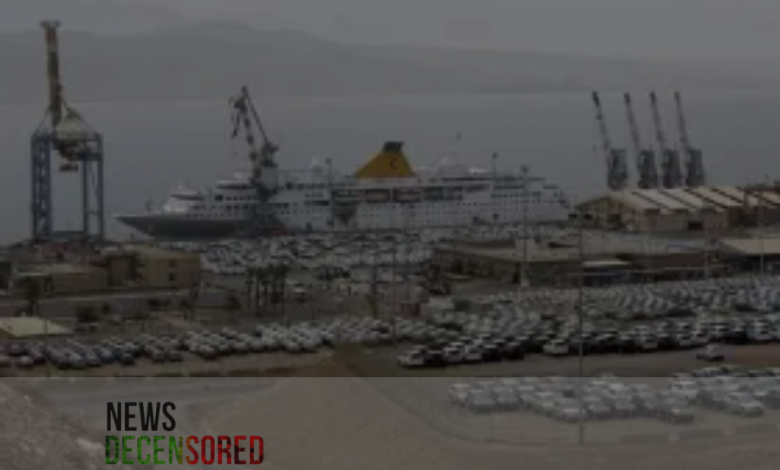Israel says Eilat Port ‘bankrupt’ after months of Houthi naval blockade

The situation in Eilat reached the state of bankruptcy: the reduction in the level of local commercial activity and revenues was observed after Yemen’s Houthis began to blockade Israeli-associated cargo ships starting in November. Gideon Goldberg, the Chief Executive Officer of Eilat Port, supported this statement.
“Still, it must be recognised the port is insolvent,” Golber said. “In the past several months, only one ship has managed [to come] here, the Yemenis have closed the door on the port.”
Last week, Eilat Port Company sent an open letter to the government asking for a $9 million bailout as the port has been virtually shut down since the Tel Aviv undeclared war on Gaza in October of last year. In December, Goldberg pointed out that the operations were reduced to 15 percent of their previous levels since the Yemeni Armed Forces started attacking the Israeli-affiliated vessels in the Red Sea. He said the same when he threatened that Eilat Port may have to dismiss employees for a while due to the stagnation.
At the same time, the Mediterranean seaports of Ashdod and Haifa are also preparing themselves for what is being described as a move to “escalation from the North with Hezbollah port” by the JP. Each of them is under the reach of Hezbollah’s missiles, which creates a high-level threat to their activity.
The Chairman of Ashdod port, Shaul Schneider, warned that in the case of confrontation with Hezbollah in the north, all ports in Israel would be paralyzed, with the exception of Ashdod because Eilat remains closed and the north is already provoked.
In an interview with Maariv, Schneider stressed the geopolitical significance of Ashdod Port, that Israel is virtually an ‘island’ nation, with 99% of its import-export trade relying on seas. Ashdod Port deals with 40% of these products, and the latter has recently provided ships to both the Israeli and American security and military departments. While missiles attacked the plant, they remain an active and functional facility necessary for the functioning of Israel; this establishes it as an irreplaceable asset in the country’s logistic and defense network.
The situation at Eilat Port and the threats in Ashdod and Haifa demonstrate how weak and unstable Israel’s sea transport industry remains due to regional unrest.
Eilat Port’s current situation can have serious economic consequences: apart from the problems of its daily functioning, it is in acute bankruptcy. Thus, reducing the port’s income under the blockade negatively influences other regions and enterprises that rely on the port’s activities. Israel is put under pressure to sort out other ports and on added alert since they became targets of Hezbollah after incapacitating Eilat Port.
This rather complicated and rather vulnerable state of affairs exemplifies the imperative need for operative and long-term strategies to protect Israel’s seaborne import-export and its ports. The government is now forced to develop operational crisis management strategies and ensure the availability of support to secure the country’s vulnerable supply chains as tension brews in the region.




